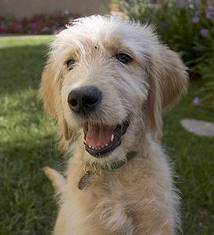Kidney Failure in Dogs, Yes They Get it Too
 Kidneys are responsible for some important things inside our bodies. They are essential in the urinary system and help in the homeostatic functions. For those non-science wizards homeostatic functions are the things that keep our body running normally. They are the natural filter of our blood and remove wastes to divert them to the urinary bladder so our bodies can dispose of them. We have all heard of humans having kidney failure, but most of us never thought about a dog. Yes, their kidneys can fail too and the problem is just as serious.
Kidneys are responsible for some important things inside our bodies. They are essential in the urinary system and help in the homeostatic functions. For those non-science wizards homeostatic functions are the things that keep our body running normally. They are the natural filter of our blood and remove wastes to divert them to the urinary bladder so our bodies can dispose of them. We have all heard of humans having kidney failure, but most of us never thought about a dog. Yes, their kidneys can fail too and the problem is just as serious.
Kidney failure is when the organ is unable to remove waste products from the blood. Uremic (kidney) poisoning occurs when the toxins build up. Although it is possible for kidney failure to appear suddenly, it normally occurs gradually over months. Most of these gradual cases are caused by nephritis, in which is an inflammatory nephropathy (kidney disease), or nephrosis, a non-inflammatory nephropathy. When kidney failure does appear suddenly it is called acute kidney failure and some of the causes are:
· A stone or other object causing complete urinary tract obstruction
· Rupture in the bladder or urethra
· A dog going through shock with inadequate blood flow to the kidneys
· Congestive heart failure causing low blood pressure and reduced flow to kidneys
· Poisoning
· Lyme disease, usually from ticks
· Leptospirosis a bacterial disease
Most damage will be done before you even have an idea your dog has a problem. If your dog has kidney failure he won’t show any signs until about 75% of the kidney tissue is destroyed.
Signs of Your Dog’s Kidney Failure
When the kidneys fail to concentrate urine your dog will become dehydrated quickly. You will notice that he is going to the restroom much more than normal. He is probably scratching at the door more times than you are used to and if he is not allowed he may begin to have potty training accidents inside your house. You cannot punish him for doing this because he has almost no control over this large urine output.
Because the kidney cannot remove waste from the blood and tissues your dog will retain acids, ammonia, nitrogen and other chemical wastes in his system. This is condition is called uremia. By measuring the serum blood urea nitrogen (BUN), creatinine and electrolytes, you vet can determine the degree of the uremia.
If your pup has uremia you will notice signs of depression and apathy. He will lose his appetite and have subsequent weight loss. Also look for a brownish discoloration on the surface of the tongue, ulcers in his mouth, and ammonia like odor in his breath. At this stage he may urinate less than normal. He will develop ascites, which is the accumulation of fluid in the abdominal region and edema, which is irregular swelling anywhere on the body due to abnormal accumulation on fluid. The dog will now have diarrhea, begin to vomit and have gastrointestinal bleeding. You don’t want the problem to get this far because once this stage of kidney failure is over the dog will fall into a coma.
Treating Kidney Failure in Dogs
If your dog is diagnosed with kidney failure he will need to have periodic monitoring of blood chemistries. This will help to detect and changes in functioning that will require medical attention. If you reduce your dogs salt intake it will help to prevent ascites, edema and hypertension.
 Protein is poorly metabolized when a dog has kidney failure. There are some controversies over what to do in this situation. Some vets say a diet rich in meat or with poor quality protein will create an increased nitrogen load that must be handled by the liver and kidneys. If fed more protein than needed, a dog with weak kidneys will go into uremia quickly. Others say that if the protein is of high biological value it help the kidneys retain their function. Every dog is different and your dog’s diet needs to be tailored to him personally. Even with these controversies there is one thing unanimously agreed upon: restricting phosphorus intake. There are medications that lower phosphorus levels and they may be required.
Protein is poorly metabolized when a dog has kidney failure. There are some controversies over what to do in this situation. Some vets say a diet rich in meat or with poor quality protein will create an increased nitrogen load that must be handled by the liver and kidneys. If fed more protein than needed, a dog with weak kidneys will go into uremia quickly. Others say that if the protein is of high biological value it help the kidneys retain their function. Every dog is different and your dog’s diet needs to be tailored to him personally. Even with these controversies there is one thing unanimously agreed upon: restricting phosphorus intake. There are medications that lower phosphorus levels and they may be required.
Fresh water at all times is also important to a dog with kidney failure. Considering your dog has huge urine output he must be able to re-hydrate himself. Some dogs may need a little help with their fluid intake. It may be scary at first, but most dog owners learn how to do subcutaneous fluid injections at home. These injections are known as sub-Q or SQ. In the later kidney failure stage as SQ may be needed on a daily basis.
While some kidney failure types are mild enough for a full recovery most cases will call for a complete change in lifestyle. There is no cure for chronic kidney failure and the problem must be controlled for the rest of the dog’s life. It will definitely take more dedication and constancy on your part but it will be worth being able to keep your best friend around as long as possible.
Dialysis for Kidney Failure in Dogs
Dialysis is another option for treating kidney failure in dogs. This describes two therapies that try to duplicate the kidneys job. Peritoneal dialysis is on method. Here there is a special fluid put in to abdomen using a catheter. The fluid will wash tissues and absorb toxins. After a set period of time the liquid is removed through that same catheter taking the toxins with it. This method is usually used in short-term kidney problems
Hemodialysis is another technique. It is expensive and only available in a couple of places in the U.S the equipment used must be specifically designed for dogs. The machine circulates the dog’s blood with filters that duplicate the tasks of a healthy kidney. Kidney Failure in Dogs is beatable.
Other Popular Health Articles
Common Health Problems
Credits Here

